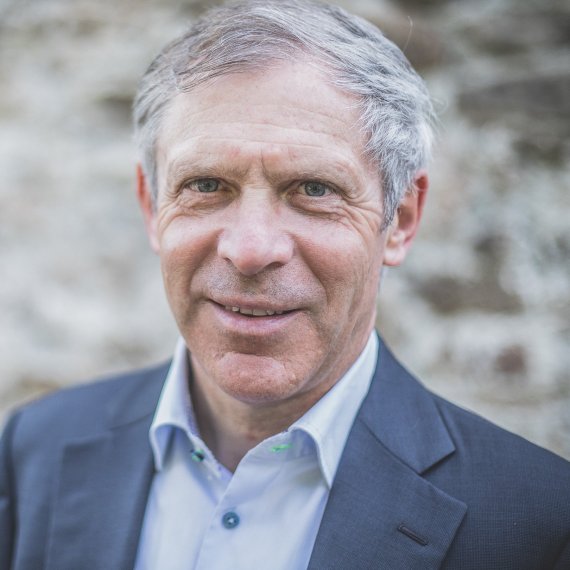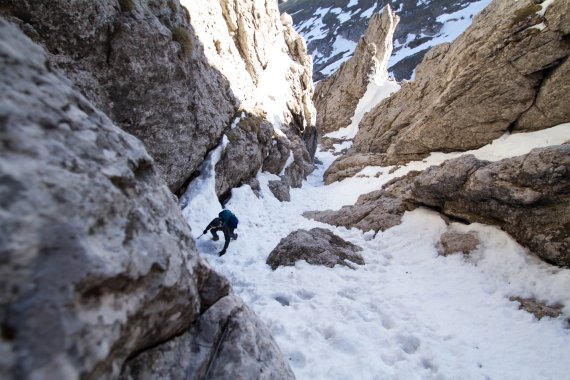
ISPO.com: At the height of the corona crisis, you as a company reacted very courageously and quickly, therfore produced masks and protective coats yourself, and also organised 20 million masks from China for Italy via licence partners. This is in line with your corporate philosophy of assuming social responsibility. Do you believe the crisis will lead to a change in thinking and more companies will prioritize social commitment - also because customers are demanding it?
Christoph Engl: The corona crisis is an accelerant for many things. Companies are no longer measured only by their sales, they are very much involved in social responsibility - that is certainly a central trend.
However, if we look at what is happening on the subject of racism, when companies and brands are actively called upon to make a commitment and take a stand, we can see that society has a different view of companies. This is only partly due to the Corona crisis.
In the future, one of the most important yardsticks will be how people assess brands - rather than companies - and what significance they assign to them. Now more than ever, the perception of a brand is a question of measuring its importance: What significance do I attach to a product that I let get close to me? How do I identify myself with it?
This is how it has also developed at the Oberalp Group: In the beginning, social commitment was primarily conceived in the context of "we create jobs". The further development was "we do something for the environment". In the meantime, we have arrived at an overall social responsibility. This responsibility goes far beyond generating added value.
With a view to the Italian market, your company headquarters in Bolzano and your customers: How has the crisis affected your business?
We felt the same way as many other companies in Italy and around the world: at first it was as if someone had pressed the reset button. Before the shutdown, everything went its usual way, the pre-orders were running and everything else that was about to happen at this time of year. Then first shutdown. This horizontal crisis - in other words, a crisis that affects everyone without exception, unlike the financial crisis of 2008 - immediately raised the question: How do we deal with it? Do we go into shock? Into a mood of catastrophe? Into confidence? Into wishful thinking?

And what did you do?
We quickly turned our attention to the aid campaign mentioned above and at the same time decided on "business continuity". Our credo was: If circumstances change, we will allow it. But we do not allow circumstances to influence us in such a way that we can no longer act.
We didn't cancel any internal or external meetings, we continued to hold training courses for our employees and our management meetings - all purely digital, of course.
In this context, we did not cancel the traditional Oberalp Convention on May 20, but held it virtually.
How can the sports and outdoor industry protect itself from further major crises in the future?
It's like health: the best way to protect yourself is to build up an immune system to stay healthy. You don't protect yourself by calling for medication after the onset of the disease. Brands build resilience much earlier, if they want to survive. That means I must have invested in my brand equity before that, not just in the product.
I must have sold over the brand equity before that, not just over the price. Furthermore, I must first have a clear answer to the question why I am allowed to exist and what the deeper meaning of my brand existence is.
In the end, what counts is how strong the customers' trust in the brand is. It's easier for brands that already have a standing and that people trust because they are still there in times of crisis. Dealers and customers alike now rely heavily on those brands that they know are stable, have not strayed too far from their core competence and can be trusted.
In times of crisis, when the environment becomes uncertain, one does not want to experiment. It's like mountain climbing: When things get difficult, you trust what you can do and what you have experience with. On the mountain you don't do experiments and try a new knot, or a new jacket, a new tent. This is why the time for brands to express their core competence even more strongly through their products is now. And it is not the time to get lost in experiments.
In the future, retailers will no longer order as many brands as before, but only those with which they have maintained stable and in some cases long-standing relationships. This has already been seen online in recent months: The stable, well-established products have performed.
You have successfully presented an interactive digital format at the Oberalp Virtual Convention. To what extent do you believe in the future of these digital "meetings" and will personal contact, for example at trade fairs, continue to be irreplaceable?
In the sports business, it's all about people first and only secondly about products. We manufacturers have to say goodbye to saying that we only make products. Actually, we build human relationships and we use products for that.
The Corona crisis made physical meetings impossible, so all that remained was virtual reality. And we have learned: It works. At the Oberalp Virtual Convention we had about 10,000 logged in IP addresses, many of them from the USA and other countries around the world. That was new. Virtual worlds enable completely different coverage, internationalization rates and individualization options for participants, because they can move quickly anywhere on and with the screen.
Nevertheless, a lot is missing: the personal component, networking, the community experience. In short: All the things you do to build sustainable relationships do not work virtually, but others do.
 Sports BusinessSponsorship between fairness and image
Sports BusinessSponsorship between fairness and image Sports BusinessHow AI simulates your target group - and the benefits
Sports BusinessHow AI simulates your target group - and the benefits
- Awards
- Mountain sports
- Bike
- Fitness
- Health
- ISPO Munich
- Running
- Brands
- Sustainability
- Olympia
- OutDoor
- Promotion
- Sports Business
- Textrends
- Triathlon
- Water sports
- Winter sports
- eSports
- SportsTech
- OutDoor by ISPO
- Heroes
- Transformation
- Sport Fashion
- Urban Culture
- Challenges of a CEO
- Trade fairs
- Sports
- Find the Balance
- Product reviews
- Newsletter Exclusive Area
- Magazine




